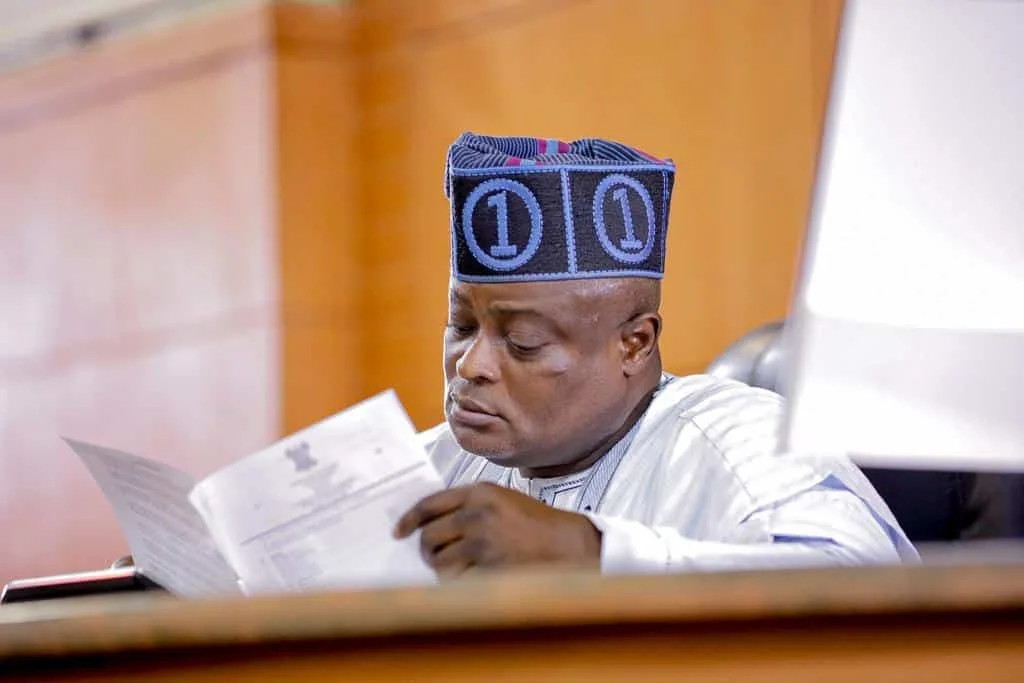Mudashiru Obasa’s nine-year reign as Speaker of the Lagos State House of Assembly came to an abrupt end on Monday following his impeachment over allegations of financial misconduct. The lawmakers’ unanimous decision signals a firm collective resolve to usher in a new era of leadership. Obasa’s tenure, marked by influence and controversy, faced its breaking point as the Assembly dissolved all standing committees and appointed Mrs. Mojisola Meranda as the first female Speaker in the state’s history.
The allegations against Obasa include the withdrawal of ₦43.5 billion for vehicle purchases and statutory breaches. His removal comes amidst longstanding concerns over his governance style, with critics labeling it authoritarian. Observers suggest his governorship aspirations, coupled with reported disrespect towards Governor Sanwo-Olu, alienated key powerbrokers. Even his allies’ earlier vote of confidence couldn’t shield him from the political tide that shifted decisively against him.
Behind the scenes, political dynamics played a pivotal role. Reports indicate that during President Bola Tinubu’s festive visit to Lagos, influential figures voiced grievances against Obasa’s leadership. The alleged tensions culminated in Tinubu rebuking the Speaker for undermining the governor and the Assembly’s political management. Obasa’s fate, shaped by both public and private discontent, underscores the complexities of Lagos politics, where alliances and power shifts can redefine leadership in an instant.
